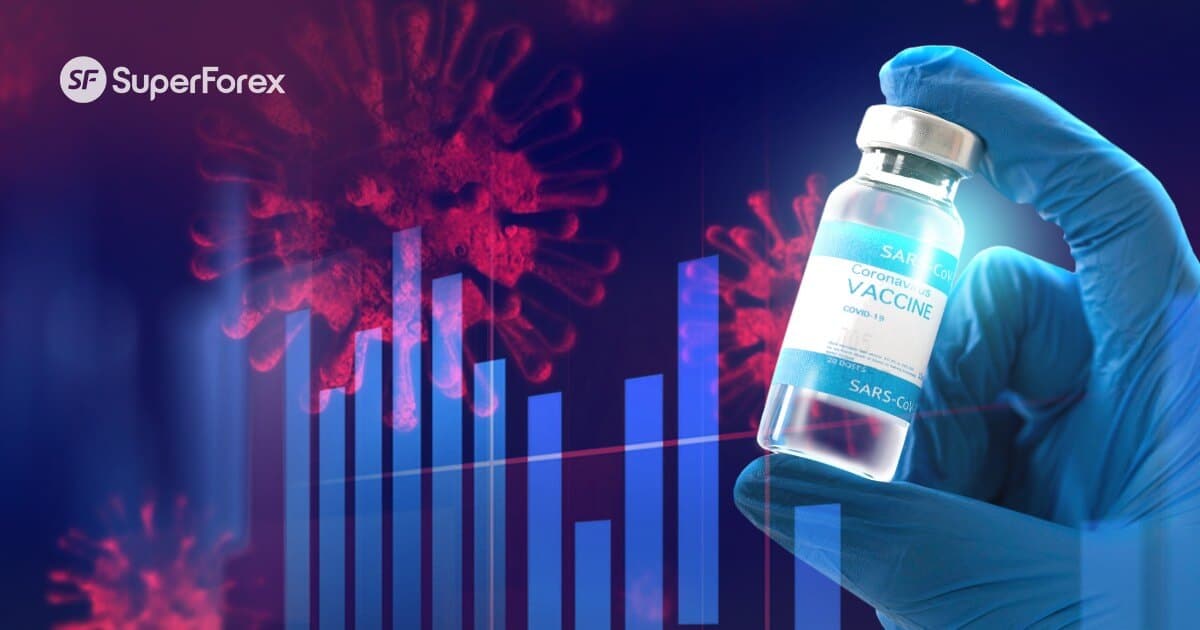Among all companies to invest in 2021, the pharmaceutical sector will present some of the most profitable opportunities. Thanks to the Coronavirus pandemic, all eyes will be on drug manufacturers as they create, upgrade, and supply Covid-19 vaccines around the globe.
Here are some of the main companies that traders need to keep an eye on.
Moderna
Moderna is a US-based company that specializes in innovative biotechnologies such as stem cell and mRNA research. In 2020, it developed one of the first Covid-19 vaccines with an efficacy rate of 94%, which is the highest currently available.
Moderna is the main supplier of Covid-19 vaccines in the United States. It also has contracts with the European Union, the United Kingdom, and other countries where its vaccine has been approved.
So far, there have not been any controversies involving Moderna. This makes it the most reliable vaccine provider at the moment, at least in the US.
Pfizer & BioNTech
Another US name, Pfizer also developed an mRNA Covid-19 vaccine together with the German company BioNTech in 2020. More specifically, BioNTech created the vaccine, while Pfizer backed it with funding and resources.
Like the Moderna vaccine, the product made by Pfizer-BioNTech has been approved internationally. The two vaccines have the same efficacy rate and work on the same principle.
One issue that these companies have been dealing with is supply. Despite working with multiple factories to produce millions of vaccines, shipments have been smaller and less frequent than initially planned.
This has affected the EU especially, since the Pfizer-BioNTech product seemed to be the vaccine of choice of the bloc.
AstraZeneca
This Swedish-British company produced a Covid-19 vaccine together with researchers from Oxford University.
It is not an mRNA vaccine and has a slightly lower efficacy rate than the afore-mentioned products. However, its storage conditions are relatively simple and it comes at a cheaper price.
As a result, AstraZeneca has one of the largest market shares in terms of Covid-19 vaccines. It is currently supplying the UK, the EU, Australia, and even the US, even though its vaccine is not approved for use there yet. Many developing countries are counting on AstraZeneca due to its price.
However, the company is arguably the most controversial among all Covid-19 vaccine makers. Like Pfizer, it has faced many supply issues and has fallen behind schedule in Europe. Meanwhile, it has supplied vaccines to the US, where its product is still pending approval.
The Oxford vaccine also wrestled with more safety concerns. Countries like Germany and France had initially not recommended the use of the vaccine in people over 65 years of age.
This made the elderly population somewhat suspicious towards the vaccine and many refused to take it.
Even after governments declared it to be safe, another issue developed when several patients reported blood clots and even deaths soon after vaccination.
The EU kept all AstraZeneca vaccinations on hold for a week as a result. After an investigation, the drug was declared safe to use. But the company’s reputation has suffered in the meantime.
Note that AstraZeneca is selling its vaccine at zero profit. That is why its product is cheaper, but the company might not profit from the pandemic.
Johnson & Johnson
Yet another US company, Johnson & Johnson joined the vaccine fray a bit later than the rest. Its product was the third and fourth vaccine to be approved in the United States and the EU, respectively.
The vaccine made by Johnson & Johnson is the weakest so far. However, it only requires a single shot and is still able to prevent severe Covid-19 to a high extent. That is why it has a logistical advantage.
The company is still in the process of making contracts with different countries and has not exported any doses outside of the US yet.
The Pandemic & Pharma Companies
It does not take a rocket scientist to guess that vaccine manufacturing is profitable during a global pandemic. However, the price and the reliability of each vaccine have decided how profitable each company is:
- Moderna’s shares went from $67 in October last year to $186 this February.
- Pfizer has remained steady around $30-40 per share, with a small peak in December.
- BioNTech went from $50 in June up to $130 in December and remains around the $100 level these days.
- AstraZeneca has been more modest; its shares rose from $38 (March) up to $60 in July. These days the share prices remain steady around $50.
- Johnson & Johnson’s shares have been steady around $150, with short-lived rallies to $160.
The main challenge ahead is how quickly each company can adapt to the new variants of Covid-19. The Moderna and Pfizer-BioNTech vaccines are still effective against the three new variants.
However, AstraZeneca’s vaccine is already lagging behind as it struggles with the South African version of Covid.
As the coronavirus evolves, companies will need to invest in R&D and do more clinical trials to determine the efficacy rate of their products. The more adaptable and reliable companies will present better investment opportunities.
You can invest in these pharmaceutical companies and more with a SuperForex trading account. Until April 15 all ECN account holders will trade at a 35% spread discount, courtesy of the broker.
















